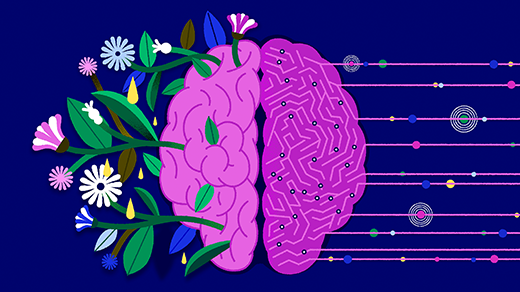What's up in
Computer science
Latest Articles
When ChatGPT Broke an Entire Field: An Oral History
Researchers in “natural language processing” tried to tame human language. Then came the transformer.
What the Most Essential Terms in AI Really Mean
A simple primer to the 19 most important concepts in artificial intelligence.
AI Is Nothing Like a Brain, and That’s OK
The brain’s astounding cellular diversity and networked complexity could show how to make AI better.
The Strange Physics That Gave Birth to AI
Modern thinking machines owe their existence to insights from the physics of complex materials.
Introducing The Quanta Podcast
Exploring the distant universe, the insides of cells, the abstractions of math, the complexity of information itself and much more, The Quanta Podcast will be a tour of the frontier between the known and the unknown.
Improving Deep Learning With a Little Help From Physics
Rose Yu has a plan for how to make AI better, faster and smarter — and it’s already yielding results.
To Make Language Models Work Better, Researchers Sidestep Language
We insist that large language models repeatedly translate their mathematical processes into words. There may be a better way.
How a Problem About Pigeons Powers Complexity Theory
When pigeons outnumber pigeonholes, some birds must double up. This obvious statement — and its inverse — have deep connections to many areas of math and computer science.
What Is the True Promise of Quantum Computing?
Despite the hype, it’s been surprisingly challenging to find quantum algorithms that outperform classical ones. In this episode, Ewin Tang discusses her pioneering work in “dequantizing” quantum algorithms — and what it means for the future of quantum computing.








